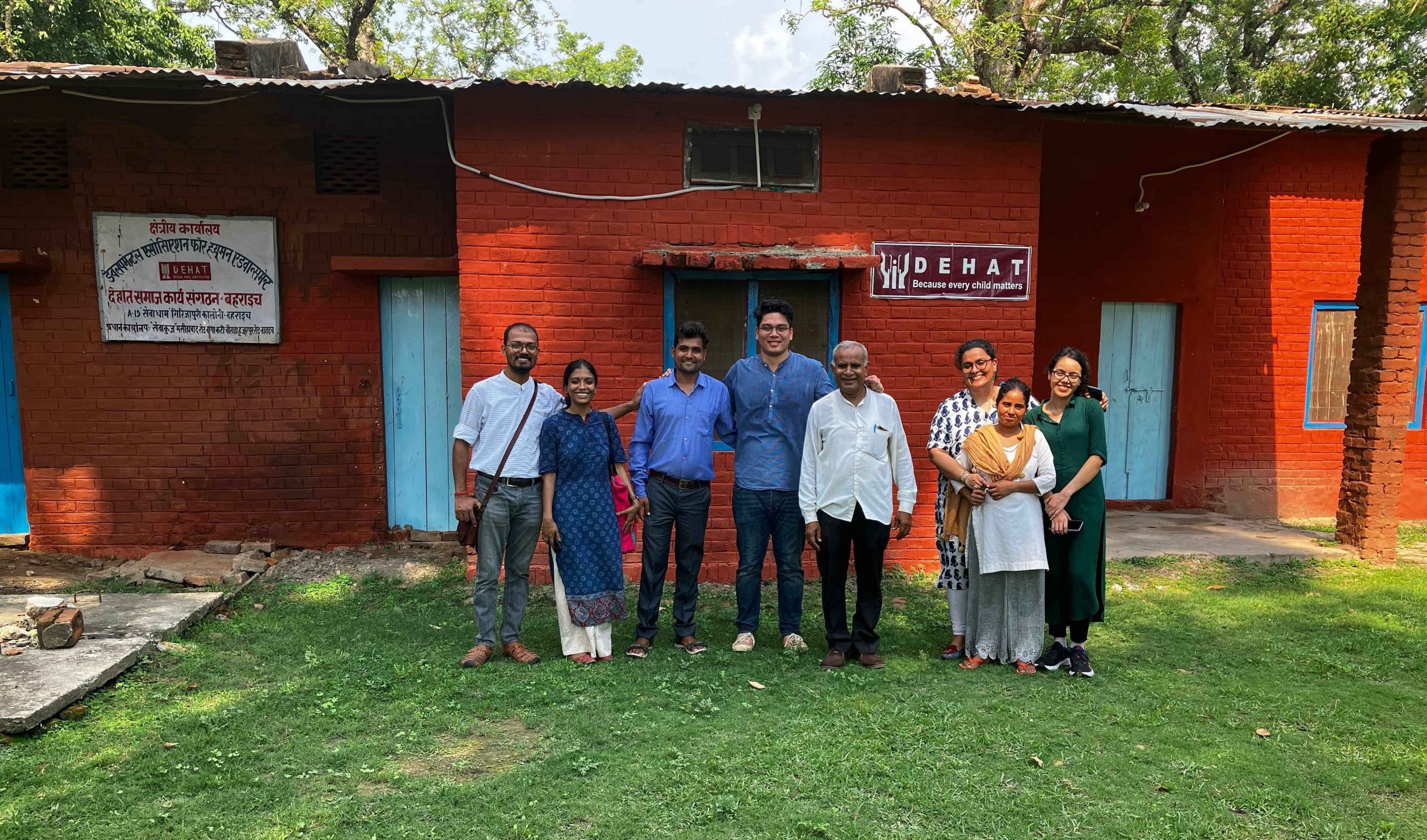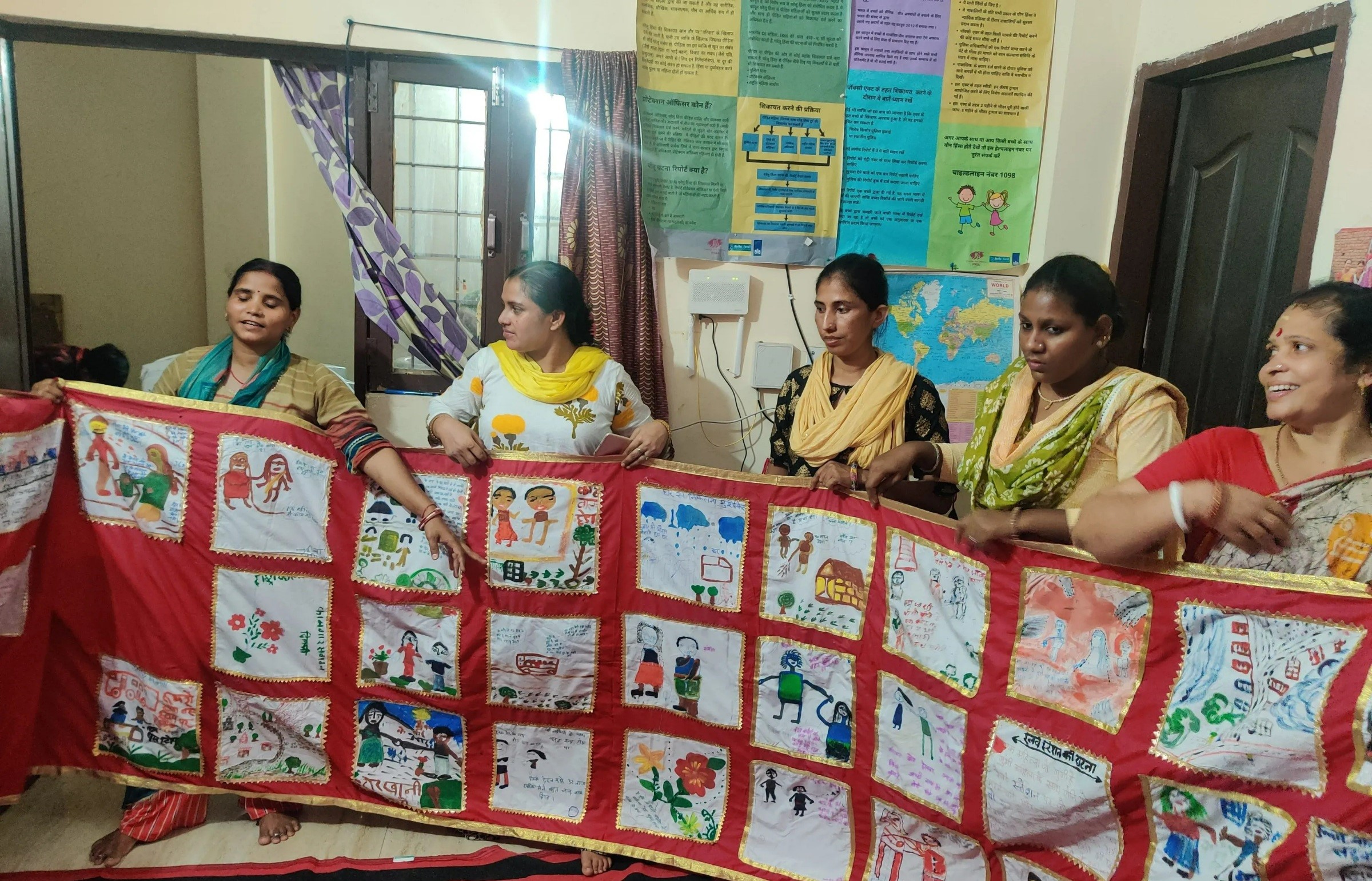The moment we walked into DEHAT’s main office, it was clear that Jitendraji (the founder of DEHAT, who had passed away last year) still had a commanding influence and presence on the organisation and the communities they serve. Left to pick up the reins are Devyani and Devyanshu (pictured leftmost) in their late 20s – who have been involved with the organisation through their childhood and youth, but were initially reluctant to lead DEHAT, hoping to chase their own aspirations instead. With advice (and firm lecturing) from Gagan Sethi, they have seemingly settled into their leadership roles within the organisation.
However, their journey comes with it’s own challenges. Even one year after Jitendraji’s passing away – Devyani and Devyanshu still admit to challenges of building trust with the communities their father had served for decades, who now are still slightly reluctant to follow their leadership. In similar fashion, they have also experienced the lack of trust from their own team questioning their ability to lead the organization (in some cases leading to exits), specially Devyani’s who was expected to take a back seat and let her brother take on her father’s role. Within the funding community, they have experienced a trust deficit due to an age bias, with funders backing out, after resonating with DEHAT’s work, only to question the ability of “young leaders”.
What we realised is that this was merely a perception and trust building issue – after having spent over 12 hours in constant conversation with them – gauging their passion, knowledge and drive to support their communities in eastern UP – expanding all the way to the Nepal border. Devyani and Devyanshu are determined to continue working for the communities, just as their father did decades ago. Their main focus right now is to build an effective second-in-line leadership – one they can enable to lead their own programs/verticals (like we have at Dasra) – enabling them to spend more time with the communities and work in collaboration with them.
Bhanmati runs a roadside tea shop in village kediya, a President medal awardee , she has galvanised over 3000 women to participate in the OFTD people’s movement . She expresses her pain and the realities of exclusion, being a Dalit woman with no formal proof of identity through her songs. While sitting by the roadside, she broke into one her songs to explain what is different between us “humra” and bhai ji “the others/the wealthy/those with knowledge and power”. Between the sounds of cars passing, goats bleating, cows returning from the field and children playing, she counts the ways in which her community is excluded ‘bade log chote log se baat nahi karna chaahte’, ‘powerful/wealthy or big people do not want to talk to small/dalit/marginalised people’..
A few lines translated from her song-
Your son studies and goes to ‘vilaayat’ (abroad) bhai ji
Our children don’t see books, they try to find them but they are unable to…
There is no question about your rules (your governance) bhai ji
Your house has ‘bijli’ (electricity)
Our thatched roof does not have kerosene oil (to burn a lantern)..
Your old lady puts cream on her face
My grandchild has nothing to eat
There is no limit to my torture and sadness bhai ji
There is no question about your rules (your governance) bhai ji


